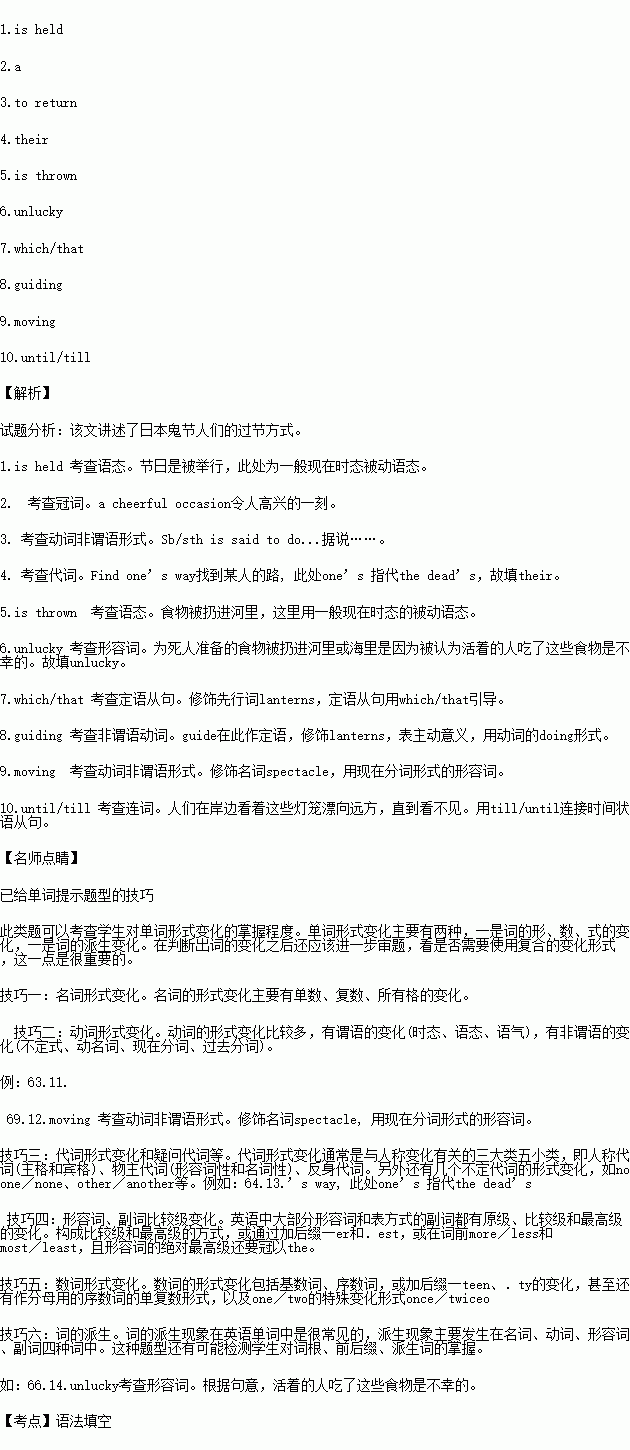题目内容
A Festival for the Dead 1. (hold) once a year in Japan. This festival is 2. cheerful occasion, for on this day, the dead are said 3. (return) to their homes and they are welcomed by the living. As they are expected to be hungry after their long journey, food is laid out for them. Specially-made lanterns are hung outside each house to help the dead to find 4. way. All night long, people dance and sing. In the early morning, the food that had been laid out for the dead 5. (throw) into a river or into the sea as it is considered 6. (luck) for anyone living to eat it. In towns that are near the sea, the tiny lanterns 7. had been hung in the streets the night before are placed into the water when the festival is over. Thousands of lanterns slowly drift out to sea 8. (guide) the dead on their return journey to the world. This is a 9. (move) spectacle, for crowds of people stand on the shore watching the lanterns drifting away 10. they can be seen no more.

